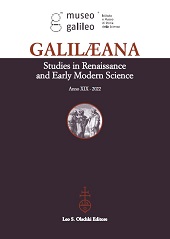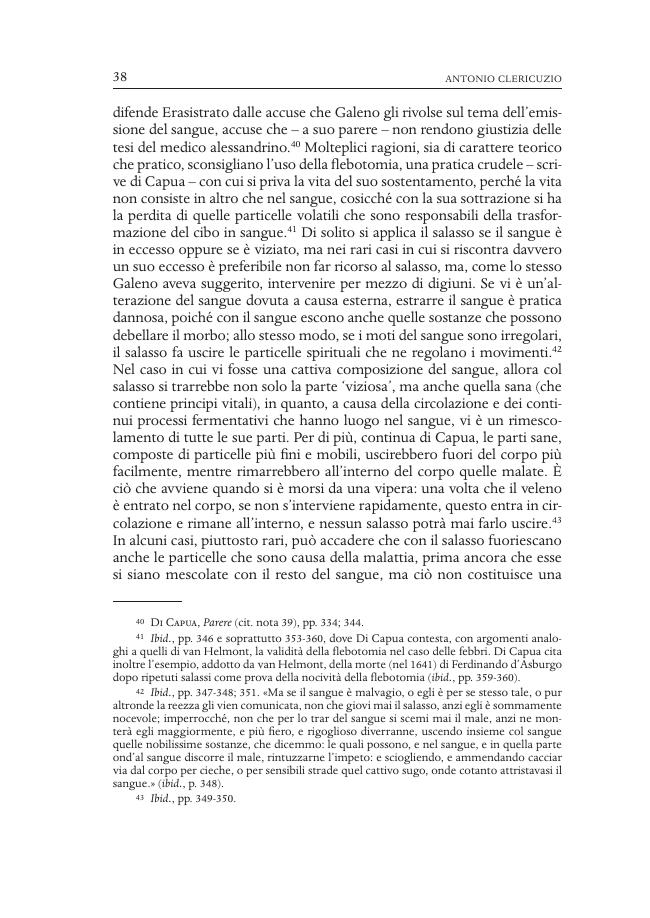De sanguinis missione : le dispute sulla flebotomia nell'Italia del Seicento
P. 23-53
In the seventeenth century Italian medicine witnessed a dispute over phlebotomy, an old and widespread therapy. In Italy, as in other countries, notably in England, the opposition to venesection was given impetus by the writings of Jean Baptiste van Helmont. The controversy was not limited to the practical aspects of bleeding. It also dealt with other themes, such as the theory of humours, blood composition, the notion of disease and the cause of fevers. The physicians who rejected phlebotomy were mainly active in Naples, as attested by Bartoli, di Capua and Tozzi. They argued that, as blood is rich in vital spirits (the verysource of life), bleeding would fail to remove the cause of the disease while hindering the healing power of nature.
Whereas the physicians who favoured iatrochemistry rejected phlebotomy, mechanists like Malpighi, Bellini and Baglivi advocated venesection arguing that reducing thequantity of blood would increase its flow velocity and thus help remove obstructions and blood stagnation. By investigating the theoretical foundations of the dispute, the present article intends to contribute to the ongoing research on the relationship between medical theories and therapeutics. [Publisher's text]
Forma parte de
Galilaeana : journal of Galilean studies : XIX, 2022-
Artículos del mismo número (disponibles individualmente)
-
Información
Código DOI: 10.1400/290728
ISSN: 1825-3903
MATERIAS



